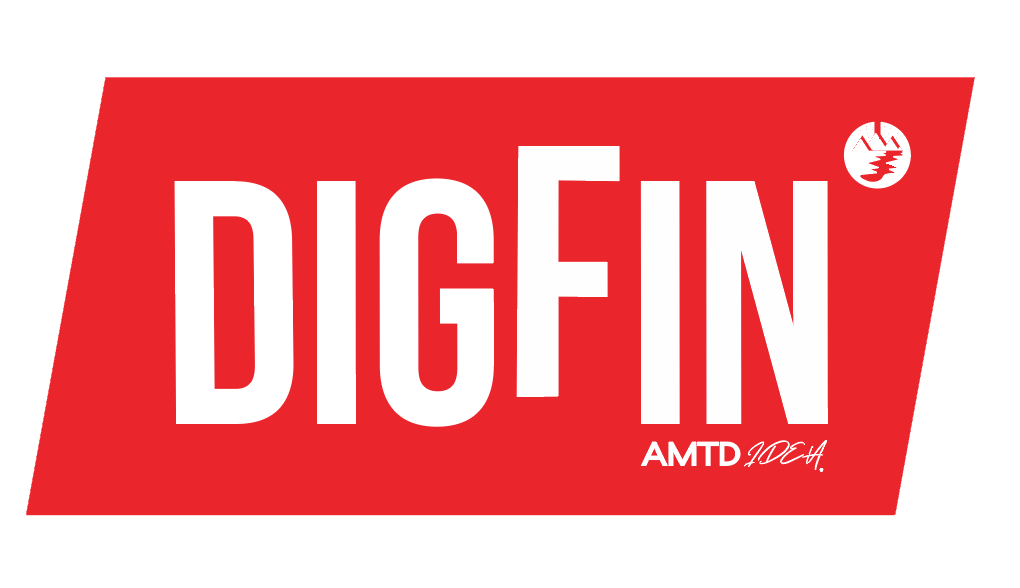Perspectives
Can Singapore virtual banks actually make money?
DigFin looks at the bidders with an eye on who has a credible wealth-management story.
Published
5 years agoon

The 21 applications submitted to the Monetary Authority of Singapore for one of five virtual-bank licenses are testament to the exciting promise of digital finance. Less a testament, perhaps, to their pursuit of sound business models.
How are these entities going to be sustainably profitable? The first VB out of the gates in Hong Kong is ZA Bank. Its beta test offers depositors a 6% interest rate. This cash-burning feature echoes the strategy of its main parent, mainland digital insurer ZhongAn Online P&C Insurance. ZhongAn’s impressive tech stack and the bottomless capital of its Big Tech parents has allowed it to amass plenty of customers, but not profits.
Such a business model will not do for a bank, which is why according to Bloomberg News ZA Bank’s pilot prompted the Hong Kong Monetary Authority to warn its freshly minted VB licensees to have a credible plan for profitability.
We are here to talk about Singapore, however. According to sources in talks with applicants, the MAS has been very thoroughly looking into the shareholders, to ensure these are truly Singaporean-controlled entities. Which is all fine and proper. But there are other questions the MAS should pursue with rigor.
Are you viable?
Above all is profitability, which is another way of saying, viability. A clever app won’t count for much in the event of a severe economic downturn or financial crisis. A trendy marketing statement won’t help you raise tier-2 capital from the debt markets to cover a liquidity crunch. A customer-acquisition model inspired by WeWork won’t defend your credit rating when the market for commercial paper seizes up.
As one local consultant put it to DigFin: “Value-destructive competition is not an option.”
The MAS requires applicants demonstrate their path to viability. They don’t have to have achieved profitability even in the medium term (five years) but must have a credible plan.
What kind of license?
What this entails depends on the type of banking license on offer: either a full retail banking license (of which two are available), or a wholesale banking license (three to be awarded).
The requirements for a retail bank are obviously more demanding. Indeed, MAS is staggering these, so that the licensees first will operate a “restricted” bank, with paid-up capital of S$15 million, caps on deposits, and credit and investment products kept simple. Once the MAS is satisfied the bank’s operators know how to run a loan book, three to five years later, it will graduate the license and let the bank grow deposits and offer any product it likes. At that point, the bank must have paid-up capital of S$1.5 billion, and it must meet the same liquidity coverage and funding ratios as traditional banks.
The wholesale licenses require capital of S$100 million – so a bigger hurdle up front, but much smaller than for a full-service retail bank. Foreigners can also own controlling stakes of wholesale VBs. But these owners must convince MAS of their path to profitability too.
This tiering is a pragmatic move by MAS. It will allow innovative banks to get off the ground quickly to serve SMEs, corporations, and accredited investors (rich people). It provides some forbearance on retail banks owned by tech companies, inviting their technology while gradually forcing them to get serious about becoming a bank. But MAS should insist on that path to viability before awarding any license.
Core business v. finance
It implies that applicants such as superapp Grab and gaming firm Razer might need to change their own business models if they want their banks to succeed. If they isolate their bank in a different corporate structure and the bank succeeds, then all will be well. But if the bank struggles over time, the MAS’s gaze will fall on the parents. How deep will their pockets be if they continue to burn through cash? Will they offer a credible backstop to a troubled bank?
“It’s up to the tech companies to solve this,” a consultant told DigFin. “They may need to decide what’s their priority: the core business, or financial services.”
How underserved, really?
A business model requires an addressable market. An important difference between Singapore and Hong Kong is that Hong Kong’s VBs will need to make separate applications to conduct wealth and insurance business. Some of Singapore’s applicants have such services included.
These other services will play a vital role, because the size of the “underserved” market for deposits and loans in Singapore is debatable. Some consultants and bidders such as Signtel have put out views that there is a 1 million-person “financial inclusion” market in the Lion City, counting gig-economy workers, e-commerce businesses, and foreign workers (maids and construction). Singapore’s population is only 5 million.
Moreover, because Singapore is an open economy reliant on trade, most of its SMEs must do cross-border business and are hostage to banks charging usurious rates for foreign exchange and other services. Singapore’s big-three banks (DBS, OCBC and UOB) are strong, credible, trusted – and generally bad at serving these small-fry customers. The banks all charge SMEs and small individuals to hold their deposits, for example. And there’s not a lot of attention paid to helping such customers realize their dreams. “Can a virtual bank help plug these SMEs into overseas opportunities, like China’s One Belt-One Road initiative?” wondered a consultant.
Some observers beg to differ with this view of mass banking failure, however. One investment banker told DigFin: “To read the Singtel numbers makes us look like a third-world country where we’re beating rocks around the fire.”
The key: wealth management
In other words, VBs that focus on deposits and modest credit products to the underserved are not going to be viable, because that market is already fairly well banked.
“The only way to reach profitability is through wealth management,” said the banker.
Some applicants that have gone public include a wealth play:
- Razer, a gaming and gaming-payments company, has amassed a broad consortium including robo-advisor Quantifeed, electronic broker Saxo Bank, and insurer FWD. It seeks a full retail license.
- Beyond, a consortium also gunning for a full license, is organized around V3, a local company owned by a tycoon known for selling massage chairs. The partners include asset managers affiliated with Temasek, including Heliconia Capital Management, and is being advised by Gan Chee Yen, former CEO of Fullerton Financial Holdings, another government-linked investment corporation.
- iFAST, which leads a consortium seeking a wholesale license, is a financial planner.
It is striking, however, that no one has teamed up with a big global asset manager. There’s no BlackRock, Vanguard, Fidelity, or J.P. Morgan Asset Management in the game, so far as is known.
Sources speculated to DigFin this could be that Chinese tech companies are simply faster and more aggressive, and the Westerners have missed out. Or Western asset managers ran their own numbers and can’t figure out how a virtual bank will make money. Or big Chinese tech firms have big ambitions and tons of capital they’re willing to burn, and haven’t really bothered to work out whether a VB will turn a profit.
Harder than it looks
Regardless of who ends up involved in a VB, the path to winning in wealth management is not so clear.
“The headlines for Asian wealth management look great, but it’s still a brick-and-mortar business,” said the former head of wealth at one of the region’s leading consumer banks. “People want both DIY digital tools, and someone they can speak with about major investment decisions.”
Moreover, wealth management is becoming less lucrative for second-tier banks as demand grows for ETFs and passive investments. The fund management companies running these products can’t charge much in the way of fees, which means consumer banks get less too. Robo-advisors selling ETF-backed services are a good business for incumbents with a captive audience of depositors looking for cheap solutions – but how do they make money for a VB that’s just starting out?
Sources tell DigFin that one of the big-three incumbents could head off VBs at the pass simply by aggressively rolling out a fuller digital wealth proposition. VBs seeking retail licenses, meanwhile, seem to lack asset-management DNA: Razer may have relevant partners, but they are three among nearly two dozen members of its consortium. Calling this a wealth-management play is a stretch.
Robo battle royale
The investment banker goes a step further. He says none of the VB applicants really have a proper wealth offering, which means they’ll need to buy one. An incumbent could do the same. He reckons Singaporean banks might snap up leading U.S. wealthtech companies – a Betterment or a Robin Hood – and leave the second-rate players to the likes of Grab.
DigFin has been told that applicants in the wholesale side – those that have remained anonymous – are cobbling together models that are more like a fintech for private banking. For example, one such entrant is floating the idea of a P2P platform connecting wealthy investors with investment products, including private equity, private debt, hedge funds and even crypto. It sounds cool. But will it make money? The tales of P2P networks in China and the US are cautionary.
“There’s a lot of sizzle but I can’t find the steak,” says the former wealth banker.
Ultimately this comes down to how VBs will acquire customers. Robo advisors have found this expensive, which is why B2C robos in Asia are almost extinct. Who brings an audience?
The players, part 1: retail
The only known applicant that has an existing consumer base is the consortium between Grab and Singtel. Observers seem to delight in telling DigFin that Singtel is terrible at innovation and that Grab just burns cash. But does it matter? Together they cater to lots of real people. Grab is Singapore’s biggest operator of online businesses, including ride hailing and food delivery. It has launched GrabPay and already has lending partners catering to its drivers and riders; with Mastercard, it recently launched a numberless credit card; and with ZhongAn, a push into insurance. Singtel, the national telco, serves the vast majority of the population and gives the VB venture a solid, stodgy “Singapore Inc” stamp.
Moreover, these two companies are both capable of helping their VB expand beyond Singapore. Grab has businesses in Malaysia and Indonesia, while Singtel has stakes in leading telecom operators across the region, including India and Australia. Singtel has also made opening moves with its mobile wallet, Dash, which has a broad alliance of partners, including airlines and merchants. Grab/Singtel’s path to viability is to become Southeast Asia’s dominant cross-border virtual bank.
Others’ path to viability becomes a little harder to discern.
Razer is pitching for Razer Youth Bank, to leverage its brand among video gamers. It does have expertise in payments and card-processing for e-commerce companies, and it has assembled a big consortium: other members include consumer groups, payments companies, automotive players, an airline, travel agents, credit fintechs, and Visa. Together it wants to promote a cutting-edge, cashless offering to millennials and Gen Zers.
Razer’s is the most comprehensive and original pitch. But how well can it assemble all of these parts, and do they add up to something greater than the sum? Also, what’s the path to long-term sustainability when the pitch is explicitly to younger people…who will at some point be older people, with different needs? And will Razer be able to keep its finger on the pulse of consumer tastes among today’s teenagers?
That may be too many question marks facing a consortium gunning for a retail license. Not as many, perhaps, as for Beyond. Local press reports suggest Ronald Sim – the massage-chair millionaire – is still pulling together partners. Stored-value card EZ-Link, insurer MSIG, and property firm Far East Organization are involved. These are serious players.
The fourth known applicant for a full retail license is Sea Limited, which owns e-commerce platform Shopee and Garena, a game developer. It is the anti-Razer, with a similar focus on SMEs and young people, but going it alone rather than raising an army of partners. Sea won’t be troubled by the “herding cats” problem, but the lack of partners raises questions of what Sea knows about banking or wealth management. It does have a unit called SeaMoney, a mobile wallet catering to duty-free shops, but the pitch seems flimsy.
The players, part 2: wholesale
In the wholesale license space, the most credible known application is probably AMTD, the Hong Kong-based investment bank, which has secured a VB license (Airstar Bank) in the Fragrant Harbor in partnership with Xiaomi. AMTD at least has finance in its blood. It is teaming up with Xiaomi again in Singapore. This bid also includes SP Group, a Singaporean energy utility with a customer base, and Funding Societies, a Singapore lending fintech with arms in Malaysia and Singapore.
AMTD has also invested in AFIN, a Singapore-based platform backed by MAS, among others, that connects global fintechs with banks in emerging markets. Like the Grab/Singtel pair, AMTD’s consortium offers a credible path to profitability by leveraging its partners’ local business customer bases to begin with, and connecting them with China (including Hong Kong) as well as other Southeast Asian markets.
Other applicants for the wholesale license include two mainland Chinese tech giants: Ant Financial and Bytedance (of TikTok fame). Ant is a black box, as it hasn’t said much, and its licensed VB in Hong Kong has yet to launch. But there’s no question of Ant Financial’s “techfin” prowess. And who says no to Jack Ma (even if he is retired)? Bytedance has no business being a bank. Case closed.
There’s also iFAST, which has two Chinese partners: Yillon Group, which operates a digital bank in China and is partly owned by tech giant Meituan Dianping; and Hande Group, a fintech founded by the former president of Tencent’s WeBank. It is an intriguing dark horse that marries financial planning, consumer internet expertise, and digital banking.
Finally, a probable also-ran: Sheng Ye Capital, a Hong Kong-listed finance firm, has teamed up with local broker PhillipCapital and with Advance.AI to bid for a wholesale license.
You may like
-


TradFi DLT reality check: what’s working, what’s not
-


StraitsX uses SGD stablecoin to connect AliPay, Grab users
-


Wealthtech past and future | Chandrima Das | VOX Ep. 87
-


Grab exploring tokenized payments for its users
-


Tiger Brokers finds a way to stop asking for passwords
-


ChocFin looks to Japan even as it continues S’pore rollout
The Future of Cross-Border Payments with VISA Direct
DigFin direct!

Why the RWA revolution will not be televised

Digital B2B Wealth | Alex Ypsilanti, Quantifeed | Ep. 90

Dušan Stojanović: AI in fintech is a compliance story

InDrive Money and Fingular enter Indonesia ride hailing





